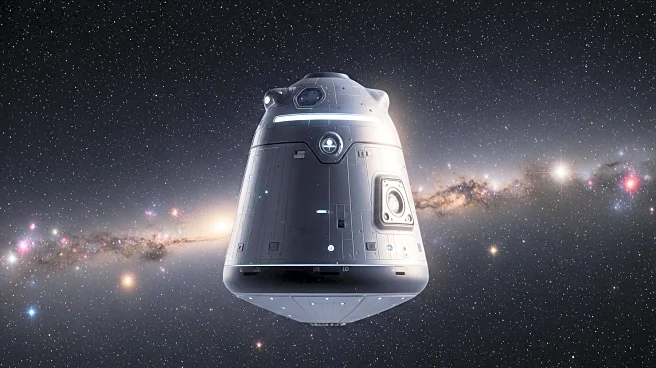What's Happening?
Blue Origin has announced the retirement of its New Shepard capsule, RSS H.G. Wells, following its final mission on September 19, 2025. The capsule, which flew a total of 12 uncrewed missions over nearly eight years, launched from the company's Launch Site One in West Texas. The NS-35 mission carried dozens of research payloads, including student experiments and projects from various institutions, but did not include any crew. The capsule reached a peak altitude of 105 kilometers before safely landing. Blue Origin plans to use the retired capsule for verification testing and display it at a location yet to be determined.
Why It's Important?
The retirement of RSS H.G. Wells marks a significant milestone for Blue Origin, as the capsule has been instrumental in advancing suborbital research and technology. Its missions have contributed to scientific understanding and provided opportunities for educational payloads, fostering innovation and collaboration. The retirement allows Blue Origin to focus on its newer capsules, such as RSS First Step and RSS Kármán Line, which are designed for crewed missions. This transition reflects the company's ongoing commitment to expanding its capabilities and supporting the growing demand for commercial spaceflight and research.
What's Next?
Blue Origin will continue to operate its other New Shepard capsules, focusing on both crewed and uncrewed missions. The company aims to enhance its suborbital flight offerings and expand its payload capabilities. The retired capsule will undergo verification testing, ensuring its systems and components are thoroughly evaluated before being displayed. Blue Origin's future plans include increasing the frequency of its flights and exploring new opportunities for collaboration with research institutions and commercial partners.
Beyond the Headlines
The retirement of RSS H.G. Wells highlights the evolution of suborbital spaceflight and the growing role of private companies in advancing space exploration. Blue Origin's efforts contribute to the broader space industry, supporting scientific research, technology development, and educational initiatives. The company's focus on crewed missions aligns with the increasing interest in space tourism and commercial space travel, offering new possibilities for human exploration beyond Earth.










